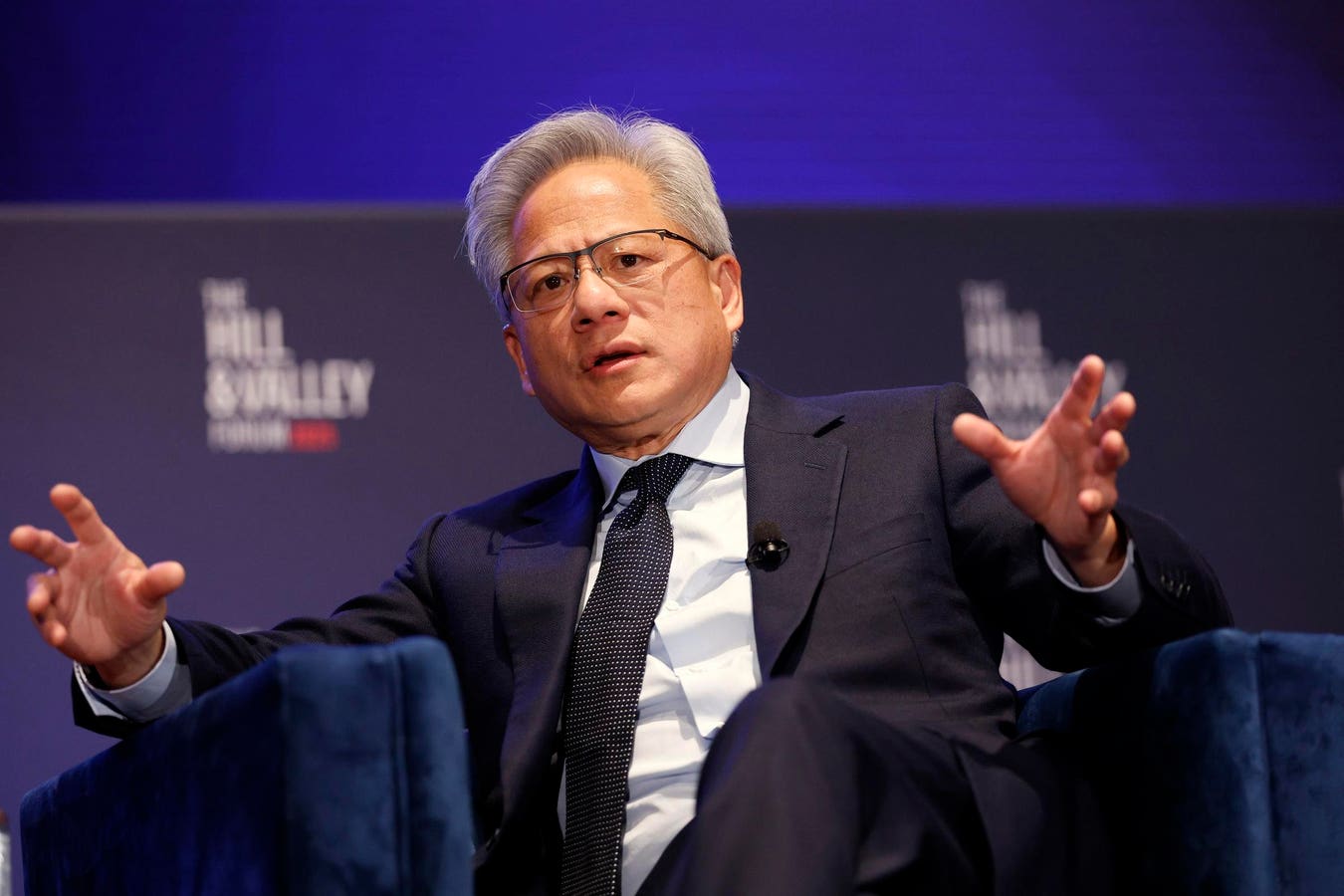WASHINGTON, DC – APRIL 30: President and CEO of Nvidia Jensen Huang speaks on AI at the return of … More
Nvidia co-founder Jensen Huang should be praised for traveling to China this week in pursuit of expansion in what is a crucial market for all manner of blue-chip U.S. companies. A world that is economically interconnected is a much more peaceful one.
It’s also a much more prosperous world, as is always the case when talented minds divide up work rather than erecting walls within it. Which means that instead of attacking the CEO, Huang should be garnering abundant praise for recognizing truths about the global economy plainly lost on his critics.
Just consider the patronizing tone in a recent letter to Huang from Senators Elizabeth Warren (D-MA) and Jim Banks (R-IN). They write of a “a new bipartisan consensus that the hardware powering advanced AI, which includes NVIDIA graphics processing units (GPUs), is of immense strategic importance.” The Senators are missing the big picture.
As longtime Nvidia employee Dwight Diercks could have told them, “Everyone takes a look at their competitors’ hardware and how it works.” Which is just a comment that short of Nvidia sitting on its world-leading technology, what it produces is available to the world for inspection and copying from the time of its creation.
The Senators tell Huang that “The Department of Commerce restricts the ability of your company, NVIDIA, to sell its most advanced chips to the PRC.” Their words are music to the ears of the Chinese Communist Party (CCP).
That’s because the CCP very much wants to remove U.S. technology from Chinese production in the AI space. Which is just a hint that Commerce and Senators like Warren and Banks are doing for the CCP precisely what free markets would not.
The reality is that Chinese technologists revere and desire American ingenuity. Too bad the U.S. political class is using force to ensure that the best of the best U.S. companies (including Nvidia) miss out on remarkable growth opportunities within China, growth that will happen with or without U.S. know-how.
To which some will respond that the technology produced stateside is yet again of strategic importance such that it must be kept in the U.S. and other friendly nations. Please re-read paragraph three. There’s quite simply no way, short of Nvidia retreating from the marketplace altogether, that the world won’t see its technology.
Which means that progress in the AI space will once again take place with or without corporations headquartered in the U.S. Yes, the void will be filled, and it will in many cases be filled by Chinese technology companies.
If readers are still confused, they need only Google Huawei’s Mate Pro 60 to see how the globally innovative can and do work around protectionism. When U.S. politicians made it illegal for U.S. technology corporations to sell crucial smartphone inputs to Huawei, the Shenzhen giant innovated on its own. Put another way, protectionism stateside didn’t restrain Huawei, rather it positioned the corporation to thrive not just in smartphones without U.S. input, but in AI itself. Call it blowback, protectionism edition.
Which brings us back to Huang’s trip to China. Quite unlike his critics, Huang recognizes that in the “closed economy” that is the world economy, the absence of Nvidia from the Chinese market isn’t just harmful from a profit-making perspective, it’s existential.
If Nvidia isn’t working with Chinese talent already free to divide up work with the rest of the non-U.S. world, it will fall behind the corporations that can and will do what U.S. politicians won’t let Nvidia do. Huang should once again be praised for seeing what his critics plainly do not.




